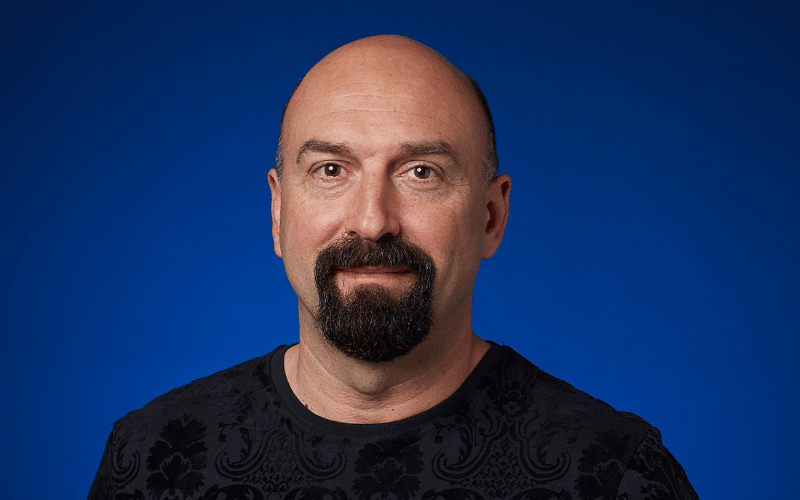Zappos.com is an American online shoe and clothing retailer owned by Amazon. Zappos employs over 1500 people and generates over $US 2 billion in revenue per annum. Alex Genov is Head of Marketing Insights and Customer Research at Zappos. In this interview with Mark Atterby, Editor of CXFocus, he explains the importance of understanding customers as individuals and as human beings.
Mark Atterby (MA): Alex, can you please provide a background to your career and an explanation of your role at Zappos?
Alex Genov (AG): Sure. I head up customer research and marketing insights at Zappos. Essentially, my team and I help the organisation to understand customers on a deeper psychological level as individuals and as human beings. We collaborate closely with our friends from data science and analytics who provide the actual behavioural data and a picture of what’s happening. It’s then up to me and my team to provide the reasons why people behave the way they do.
Storytelling or telling stories about our customers that lie behind the data is a critical part of our job and how we assist all areas of the business to understand the customer and their journey.
I have an academic background in experimental social psychology. I came to the US from Bulgaria to study psychology at Cornell University then continued on to graduate school at Clark University in Worcester Massachusetts. What I learned from my time in academia is this focus on individual differences and understanding that people are not all the same. I also focused on understanding emotions, how they get generated, how we experience them, and how we measure them. These are the two main things that I took with me from academia and have been able to apply in the business world.
MA: Could you elaborate on how you have applied these learnings?
AG: Firstly, I’d say you don’t want to take this to the extreme, especially for businesses with millions of customers. It’s not practical from an operations point of view to cater to the needs of every single individual. It is also important to highlight how you use qualitative insights versus quantitative insights. Great qualitative insights can come from one conversation with one customer. Then you need to figure out, ‘Does it apply to many more customers?’
Let me tell you a story of when I was a young researcher at Intuit, which produces accounting and personal finance software. I was doing usability testing for their TurboTax software, which helps people do their income tax returns in America, with a real customer. The software takes users, screen by screen, through a series of simple questions. During the test, where I was taking this customer through a series of screens, I asked her what she thought of one particular screen. She said it was pretty intuitive, easy, and non-threatening. I delved deeper into what she was saying and found that by non-threatening she meant there wasn’t a lot of text. If there was a lot of text on the screen it made her feel that she needed to know more than she actually knew to complete her tax return.
We then quantified the number of people who had that mindset. We found that there were other people who had different mindsets. Some people, for example, enjoyed reading a lot of text as it allowed them to gain knowledge and feel better informed.
By understanding those two different mindsets we realised we needed to provide two different types of experiences; one that was very streamlined for people who didn’t want to see a lot of text and another where people could click on a link to go deeper and read more. So that was a great example of combining a qualitative insight with a quantitative insight to understand and cater to individual differences.
Later in my career and at Zappos, I have spent my time helping Marketing to understand and cater for individual differences. The way individual differences are applied in marketing is through market segmentation. You can segment people by demographics, which is not very insightful or actionable, or you can segment them by their behaviour, but then again you don’t know why they’re behaving in a certain way. The most interesting, actionable and insightful way to segment people is through psychographics which is understanding their attitudes, beliefs, and their deeper psychological and personality traits. Segmenting and understanding differences around these factors provide better outcomes.
MA: What are your top priorities for 2023?
AG: One of my key priorities is to continue providing actionable insights to the organisation on customers. To keep moving on this priority our Voice-of-the-Customer (VoC) program is critical. We let our customers give us feedback along their shopping journey, where they can access very brief surveys and give us their thoughts on their experience. It is very important to ensure that the insights we gain from customer feedback are acted on.
Another priority I have is to streamline our operations and how we conduct research on our customers. We are very mindful of the time and effort our customers and our colleagues devote to giving us feedback and data. We want to make the research we do and the surveys we conduct to be as efficient as possible.
MA: What do you believe is necessary to be successful in your job?
AG: I would say one of the key aspects of my role is the ability to adapt to change. Change is probably the one sure thing in life. I had to adapt from the academic environment to the business world where the rules between the two worlds are very different. I had to adapt the methods and approaches I learned from academia to the very practical world of business. You really need to really look at what the business needs are and adapt your methods and your approaches as well as listen to the different stakeholders you need to engage with and really understand them.
Empathy is important, not only in understanding your customers but also your colleagues, your employees, and all relevant stakeholders. And the ability to lead without having authority over people can really come in handy.
MA: What would you say is the biggest highlight in your career?
AG: I’m really enjoying my time at Zappos a lot. I have been here for almost nine years. I’m proud of a few things but I would say starting our VoC program at Zappos and really enabling our customers to give us feedback through the digital channels is one of those achievements that I’m pretty proud of.
Alex is an international speaker at the Customer Show in Melbourne 3-4 May Keynote Turning Your Customers into Advocates: How to Elicit an Experience by Humanising your Customer Base


